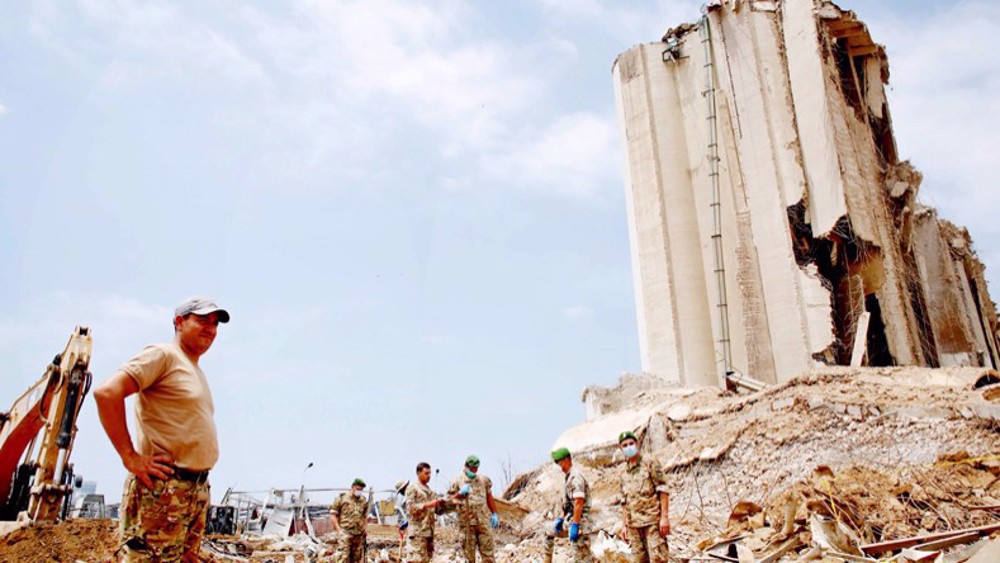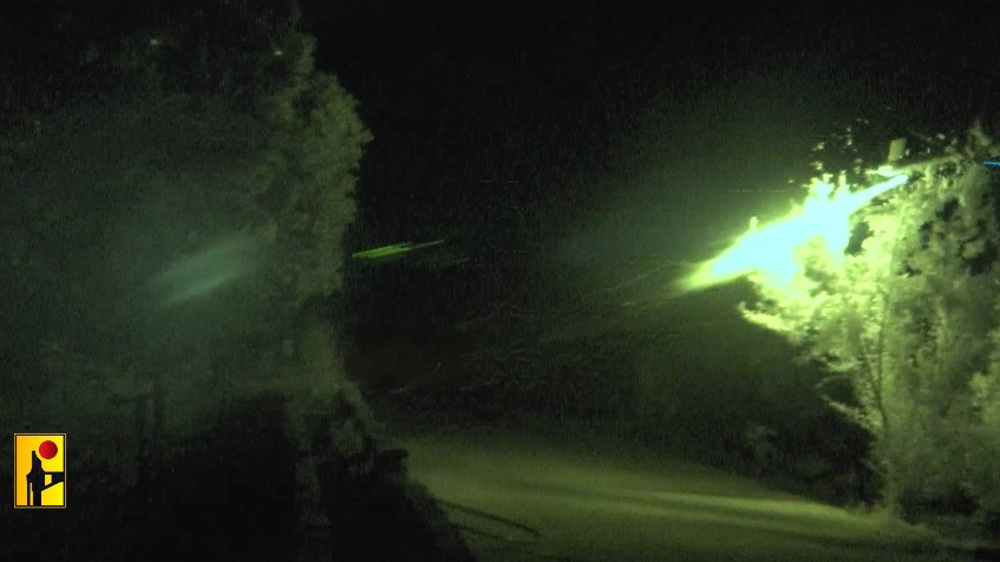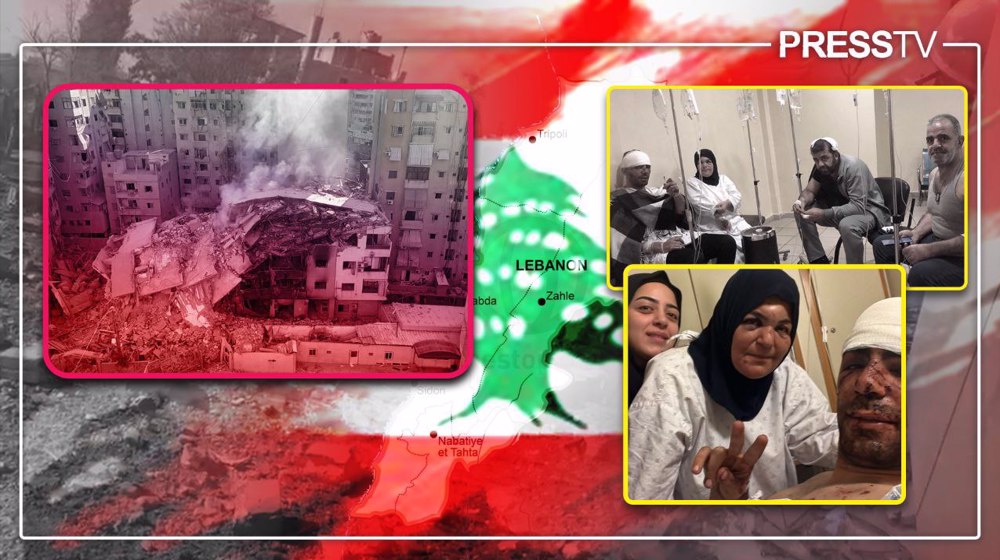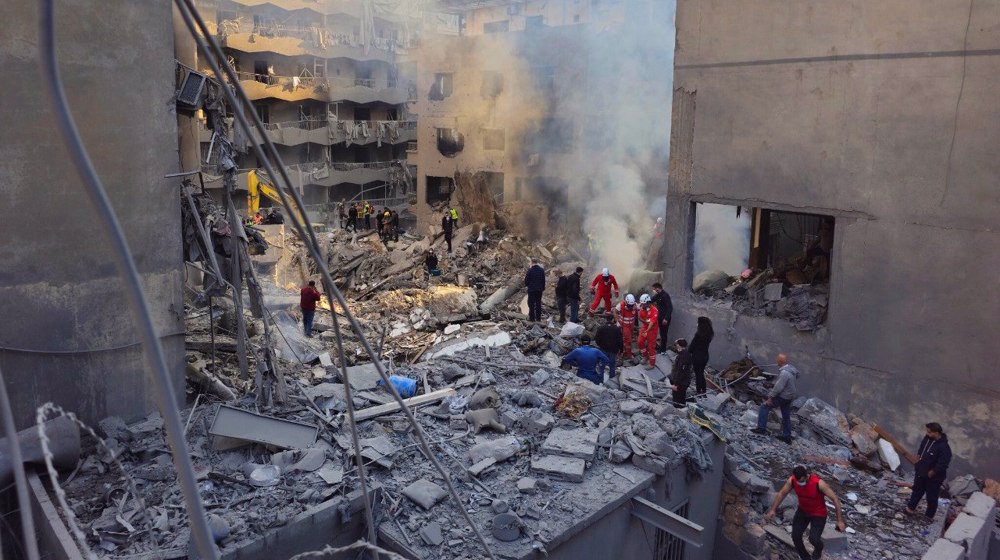Beirut blast aftermath resembles Lebanon civil war: MSF chief
Doctors Without Borders, known as MSF, has likened the humanitarian fallout of the recent massive explosion in Beirut to that of Lebanon's civil war, which lasted for 15 years.
"We lived difficult and similar experiences during the Lebanese war," MSF president Mego Terzian said on Thursday of the country's 1975-90 civil war.
Bombings of petrol warehouses near the port had yielded "similar scenes -- the city was completely devastated, people were wandering the streets, wounded, desperate, without knowing where to go," he said.
"Lebanese healthcare workers, especially those with experience of the civil war, were able to triage the emergency rooms very quickly and prioritize those patients who had to go to the operating rooms."
Terzian pointed out that warehouses storing medicines and vaccines in the port of Beirut were damaged in Tuesday's monster blast.
He went on to say that after the initial rush to treat the injured, the next priority would be to provide food and shelter to the destitute.
"Another priority will be taking care of people with chronic illnesses, those with cancer, HIV or respiratory diseases such as asthma, given the risk of an interruption of drug supplies," he said, stating that the dialysis center, which was the biggest in the country, was completely destroyed.
Still, hospitals that were quickly overrun on Tuesday, with overflowing emergency rooms, had a handle on the situation by Wednesday with many injured transferred outside Beirut, Terzian added.
Terzian also said some regional countries were sending field hospitals, and attempts were being made to guarantee supplies of basic medicines such as antibiotics, painkillers and blood bags.
The provisional death toll from Beirut’s massive blast stood at 137 on Thursday, with dozens missing and 5,000 wounded. The number of victims is expected to rise as search and rescue operations continue for people listed missing under the rubble in areas near the port.
Beirut Governor Marwan Abboud estimated up to 300,000 people may have been made temporarily homeless by the explosion, and damage from the disaster would cost the debt-ridden country billions of dollars.
According to Lebanese officials, thousands of tons of ammonium nitrate stored in a warehouse at the port in Beirut caused the massive explosion.
Lebanon’s President Michel Aoun has called for a two-week state of emergency in Beirut following the huge explosion, with the country’s top defense body describing the capital as a “disaster-stricken” city.
Separately, Lebanese Prime Minister Hassan Diab has promised there would be accountability for the fatal incident at the dangerous warehouse. “Those responsible will pay the price.”
He is heading an investigation committee, which includes the justice, interior and defense ministers and the head of Lebanon's top four security agencies: the Army, General Security, Internal Security Forces and State Security.
The committee has been tasked with reporting its findings to the cabinet, and the cabinet, in turn, is obliged to refer those findings to the judiciary.
On Wednesday, the government announced that those responsible for guarding and storage of 2,750 tons of ammonium nitrate, a substance used in making fertilizers and explosives, at the warehouse would be placed under house arrest “as soon as possible.”
The cargo had been stored at the port since it was confiscated from a ship more than six years ago. Based on the timeline and the size of the consignment, the ship could be the MV Rhosus.
The ship was initially seized in Beirut in 2013, when it entered the port due to technical problems, according to lawyers involved in the case. It came from Georgia, and had been bound for Mozambique. The stockpile is believed to have detonated after a fire broke out nearby.
Explainer: How Yemeni military chased away US aircraft carrier from Red Sea?
French march for women of Palestine
Erdogan: Upholding ICC arrest warrants will restore trust in intl. system
Iran activated new centrifuges in response to IAEA resolution: Parl. speaker
Nov. 23: ‘Axis of Resistance’ operations against Israeli occupation
Lindsey Graham threatens to sanction US allies backing ICC arrest warrants
VIDEO | Tens of thousands of Catalans protest to demand access to better housing
Israel launches air strikes on Syria-Lebanon border crossing













 This makes it easy to access the Press TV website
This makes it easy to access the Press TV website